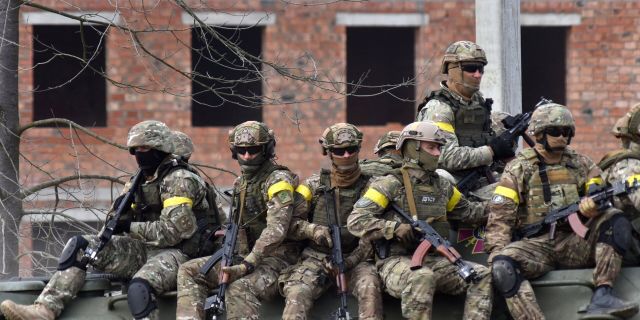The Path to conflict in Ukraine: Truth versus FictionTo downplay the importance of Western provocations in Ukraine is simply hypocrisy, the author of the article in Asia Times believes.
He notes that there is about as much diversity in the reporting and analysis of America's most popular media as in North Korea.
James CardenThe French political philosopher Pierre Manet once remarked that "people are thinking animals who, in order to navigate the world around them, need fairly correct ideas and accurate assessments."
He further noted that this is "the more correct the more active and intellectually wealthy the interested person is."
As for the conflict in Ukraine, it is reasonable to ask whether there are at all "sufficiently accurate" assessments not only of the current situation on the ground, but also of how we came to it.
It would not be a big exaggeration to generalize that the diversity in the reports and analytics offered by the most popular news agencies and publications in America is about the same as, say, in North Korea.
Too often, imaginary specialists act as propagandists of the side of the conflict that they themselves support.
Former US Ambassador to Russia Michael McFaul and Military Academy political scientist Robert Person called "democracy, not NATO," the main threat to "Putin and his authoritarian regime." Further, the authors noted that "Putin may not approve of the expansion of NATO, but in fact he is afraid of something else. Russia has the largest army in Europe, fed up with two decades of lavish spending. And NATO is a defensive alliance."
They are echoed by Francis Fukuyama, author of the book "The End of History and the Last Man": he believes that although "Putin clearly did not like the prospect of Ukraine joining NATO, the real motive was different."
However, similar claims that it was not NATO expansion that prompted President Putin to start hostilities, but something else, are refuted by the recent revelations of two former American intelligence officers on Russian affairs, Angela Stent and Fiona Hill.
In their article in Foreign Affairs magazine in early September, Stent and Hill (long-time critics of the Russian president) noted, with reference to a number of former high-ranking American officials, "that in April, Russian and Ukrainian negotiators "apparently tentatively agreed on the contours of an interim settlement."
Apparently, Ukraine's commitment not to join NATO was implied in exchange for "security guarantees from a number of countries."
Another well-founded refutation of the legend that "it's not about NATO" (although it serves as a political screen for the constantly expanding participation of the American administration in the conflict for a reason), we read from Benjamin Abelow, whose new book "How the West brought War to Ukraine" perfectly sets out the preceding circumstances.
Abelow, a political scientist, a nuclear weapons specialist and a graduate of the Yale School of Medicine, proves without a shadow of a doubt that the main provocation for the Russians was the expansion of NATO.
But not only that.
A key role in the Russian assessment of the military situation over the past 30 years has been played by America's decisions to withdraw from the Anti-Missile Defense Treaty (ABM) and the Treaty on the Elimination of Intermediate-Range and Shorter-Range Missiles (INF).
The decision to deploy the Aegis Mk 41 missile launchers on Russia's western borders in Romania and Poland further alarmed the Russian General Staff: since 1999, the NATO "defensive" alliance has carried out several stages of expansion and is steadily approaching the Russian borders.
Abelow emphasizes that Aegis systems are not just defensive weapons, as they are compatible with various types of missiles. Most importantly, they can also launch offensive missiles with nuclear warheads like cruise Tomahawks with a range of 2,500 km. "They can hit Moscow and other targets in the center of Russia and carry hydrogen warheads with a capacity of up to 150 kilotons — about ten times more than the atomic bomb that wiped out Hiroshima," he concludes.
Abelow introduces the reader to a whole string of Western provocations: live—firing exercises in Estonia in 2020 and 2021; Operation Sea Breeze - 2021, which almost resulted in a collision of Russian and British warships; and a number of military and diplomatic agreements concluded between the United States and Ukraine during 2021 and designed to ensure interoperability and support Kiev's desire to join NATO.
The book "How the West brought War to Ukraine" is by no means an apology for the Russian president — Abelow considers him responsible for the fighting. "Putin is responsible," writes Abelow, "It was he who started the fighting and leads them together with his strategists. Although there was no need for them."
However, it would be useful for former American officials like McFaul to ask themselves the following question that Abelow raised: "What position would we be in if the United States acted differently?".
James Cardin is a former adviser to the Bilateral Russian—American Presidential Commission at the US State Department. Published in various publications, including The Nation, The American Conservative, Responsible Statecraft, The Spectator, UnHerd, The National Interest, Quartz, The Los Angeles Times and The American Affairs.

